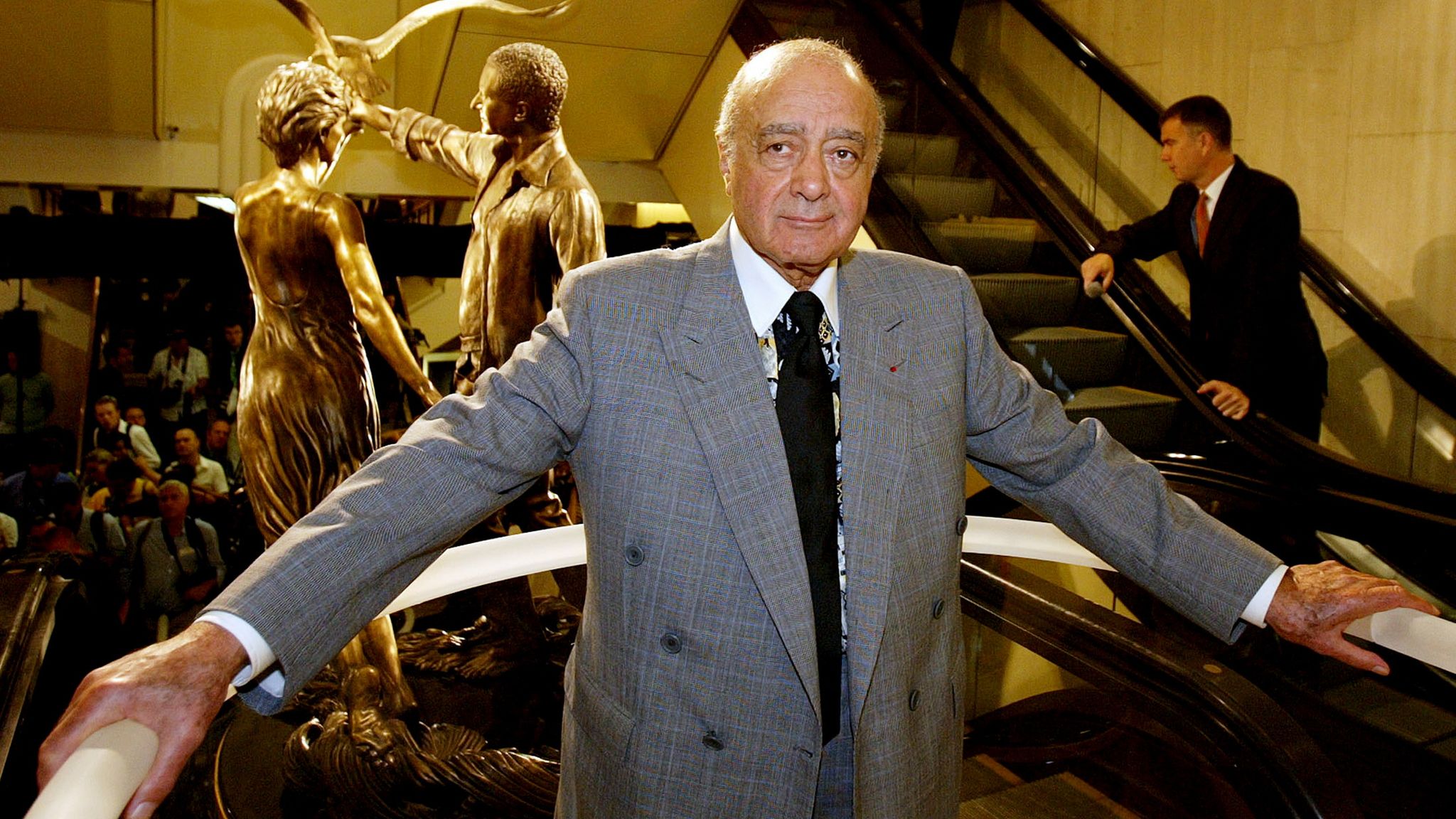The Egyptian businessman was denied the British citizenship twice despite his major investments in the country.
Mohamed Al Fayed, Egyptian business tycoon and former owner of London department store Harrods, has passed away at the age of 94, his family confirmed on Friday.
A family statement released by the Fulham Football Club, which Al Fayed previously owned, said that the late businessman had passed away “peacefully of old age on Wednesday”.
“Mrs Mohamed Al Fayed, her children and grandchildren wish to confirm that her beloved husband, their father and their grandfather, Mohamed, has passed away peacefully of old age on Wednesday August 30, 2023,″ the widely circulated statement read.
The late Al Fayed owned major business names including the Ritz hotel in Paris, Fulham Football Club and Harrods.
However, Al Fayed’s 26-year ownership of Harrods ended in 2010 after selling the store to the Qatari royal family in a transaction reported at the time to be valued at approximately 1.5 billion pounds ($2.3 billion).
Notably, Al Fayed was the father of film producer Dodi Al Fayed, who had died in the tragic 1997 car crash alongside the late Princess Diana in Paris.
The self-made Egyptian billionaire’s death also came just a day before the 26th anniversary of the accident which remains at the centre of discussions regarding the British royal family, until present.
Meanwhile, the unfortunate news of Al Fayed’s passing has sent shockwaves in the United Kingdom and triggered an outpouring of condolences, as people took to social media to share the businessman’s legacy.
“RIP Mohamed Al Fayed, 94. An extraordinary tour de force of a man who never got over the death of his beloved son Dodi in the crash that also killed Diana. Mohamed wasn’t everyone’s cup of tea and he was a flawed, complex character, but I liked him,” prominent English TV personality Piers Morgan said in a post on X, formerly known as Twitter.
In a separate statement, Fulham also expressed its sadness over the death of its former owner.
“The story of Fulham cannot be told without a chapter on the positive impact of Mr Al Fayed as Chairman. His legacy will be remembered for our promotion to the Premier League, a Europa League Final, and moments of magic by players and teams alike,” Al Fayed’s successor, Shahid Khan, said.
A long career journey
Al Fayed has left behind a business empire after living a life filled with extensive experience in the industry.
His career started in his home country, Egypt, where he sold fizzy drinks for a living before becoming a sewing-machine salesman, per a Reuters report.
The businessman later climbed his way up in the real estate, shipping and construction sectors in the Middle East before branching out to Europe. While Al Fayed became a resident in Britain in 1974, he was never granted the British citizenship.
The Egyptian mogul reportedly sought to garner more acceptance in the UK with his purchase of Harrods in 1985, when he beat British businessman Roland “Tiny” Rowland to the deal, triggering Britain’s longest and most bitter corporate dispute.
Angered and defeated by the purchase, Rowland took Al Fayed and his brothers to a Department of Trade inquiry after accusing them of manipulating their wealth. The British businessman was even described as “the unacceptable face of capitalism”.
The UK’s government denied Al-Fayed’s second citizenship application in 1995, a move that the billionaire said stemmed from racism. In 1997, he accused the British royal family of masterminding the car crash that killed his son because they were against Diana being in a relationship with an Egyptian.
Al Fayed was still recognised across Europe for his major business role in the region. This was seen when France granted him the Legion of Honour, its highest civilian award.
Despite the many obstacles in his career, he still secured the ranking of the 104th richest person in the UK with a family fortune of 1.7 billion pounds ($2.1bn), as per a recent report by the Sunday Times Rich List.
Over the past decades, it became clear that Al Fayed did not only want to leave behind a metaphorical mark in the business world, but remain remembered in a palpable manner even after his death.
He had previously mentioned wanting to be mummified in gold and placed in a pyramid on the roof of Harrods.







